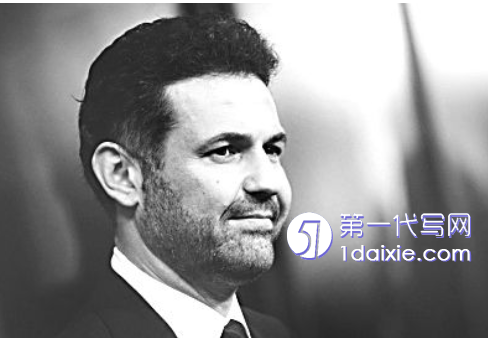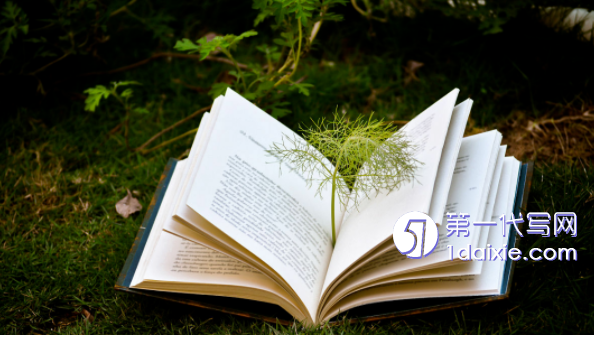本文是一篇英语毕业论文,本论文主要从想象界、象征界和实在界三个方面展开研究。首先,本论文探讨了童年时期玛丽雅姆对自我的误认。在想象界中,玛丽雅姆在“小他者”的影响下建立理想的自我,并将理想自我误认为真正的自我。
Chapter 1 Introduction
1.1 Khaled Hosseini

Khaled Hosseini,an Afghan-American writer,received many awards and was the“Goodwill Envoy for the United Nations High Commissioner for Refugees”.In 1965,Khaled Hosseini was born in a happy family in Kabul,Afghanistan.His father was anofficer in the Foreign Ministry of Afghanistan,while his mother was a teacher in awomen’s school.So,Hosseini had a stable and peaceful childhood.In 1976,his familymoved to Paris after his father got a job there.Then they never came back to Afghan onaccount of the disorder and instability of the nation.In 1980,they moved to Americawhere they experienced difficulties and poverty when they arrived.They lost status andwealth,and had to deal with the differences in language and culture.During this period,Hosseini majored in biology at the University of California.He obtained the M.D.andbecame a physician in 1993.In 1999,he occasionally read a report that the Taliban bannedflying kites,which was his favorite activity in his childhood.So he was influenced by itand then began to write a story.Then based on it,his first novel,The Kite Runner,wasfinished in 2003,which focused on two Afghan boys and told a story about betrayal andsalvation.The Kite Runner achieved success after its release,won various awards,andheld the Amazon ranking for 131 weeks.In 2006,Hosseini was rewarded UNHumanitarian Award and became“Goodwill Envoy for the UNHCR”on account of the tremendous impact of his novels.In addition,he founded the Hosseini Foundation toprovide assistance to Afghan refugees.In 2007,A Thousand Splendid Suns,the secondwork,was published,marking the maturity in his writing career.Then he began to writeAnd the Mountains Echoed and published it in 2013.
1.2 A Thousand Splendid Suns
A Thousand Splendid Suns,published in 2007,is regarded as another masterpiece ofKhaled Hosseini after The Kite Runner,marking the maturity of Hosseini’s creation,having attracted extensive attention and welcome.The title of the novel comes from apoem about Kabul written by 17th century Afghan poet Saib-e-Tabrizi.Its last words,“athousand splendid suns”,are so proper for reflecting the theme of this novel.Hosseinifocuses on the situation of Afghan women and describes a story of two women aboutgrowth and salvation in their miserable life.There is full of violence and oppression in thenation because of wars and extreme religionism.The individual has to endure hunger,poverty,and pain under unsafe and unrest circumstances.Moreover,symbolism and stream of consciousness are used to describe the feelings of the two women in the novel.
Mariam was an illegitimate daughter of a wealthy businessman in Herat.Her mother,Nana,used to be a servant of a businessman and suffers from the illness.After beingpregnant,Nana was sent to a remote village.Then with her mother,Mariam lived in aKolba that was a modest little mud hut.Her father would come and see them regularly.But Mariam was not willing to live a quiet and boring life.She hoped she could live withher father and enjoy equal rights just like other girls in the city.Then she went to herfather’s house alone despite her mother’s warning on her 15th birthday.However,she wasrejected by the family.When she had to go back to the Kolba,her mother committedsuicide.Then Mariam had to live with the Khans.Soon,she was forced to marry an olderman Rasheed who is a shoemaker.They lived in Kabul,which was far away from Herat.At the beginning,Rasheed was nice to Mariam.But he often abused Mariam because shehad no children over the years.
Chapter 2 Theoretical Basis:Lacan’s Three Orders
2.1 Jacques Lacan and His Structuralist Psychoanalysis
Jacques Lacan(1901-1981),a French scholar famous for psychoanalysis,is regardedas the most important philosopher in France after Descartes and one of the most creativeand influential thinkers in Europe.Jacques Lacan,born in a middle-class family in Paris,was the oldest son and had a brother and a sister.In his early years,Lacan was educated incollege Stanislas where he learned Greek,Latin and mathematics.When he was 15 yearsold,he began writing poems using classical approaches.Then at the age of 17,he metsome crucial masters in modern literature,for example,James Joyce.At the same time,Lacan was interested in philosophy,especially the ideas of Baruch Spinoza.During theFirst World War,he gave up his religious belief because of the brutal killings in the war.In1919,Lacan studied psychoanalysis at the University of Paris.Meanwhile,he continued tolearn literature and philosophy.Later,Lacan worked at Hospital Sainte-Anne.In 1928,heworked in the subordinate hospital of the police station.At the same time,he focused onpsychopathology and criminology and published a paper discussing mental disease.Thenhe began to read Feud’s works and analyze the symptoms of the psychotic by the linguisticmethod.Gradually he took paranoia as the object of his research.In 1932,Lacan finishedhis paper“On Paranoiac Psychosis and its Relations to the Personality”with the help ofHenri Claude,and earned Ph.D.from the University of Paris.It was the beginning ofLacan’s career in psychoanalysis.In 1933,he associated with artists of Surrealism,such asSalvador Dali,Andre Breton and so on.He was influenced by Surrealism and publishedarticles in Minotaure,discussing the relationship between mental illness and artistic styles.Besides,he attended the conference about Hegel’s dialectic,which had a profoundinfluence on his thoughts.He also studied the psychology of Henri Wallon,which set afoundation for his theory of the Mirror Stage.In 1936,Lacan published a report about theMirror Stage,which was the first publication of his related theories.After the SecondWorld War,Lacan participated in the activities of Societe Psychanalytique de Paris(SPP)and then acted as chairman.
2.2 Lacan’s Three Orders
Lacan first put forward the Three Orders in his paper at the Rome Congress ofRomance Language Psychoanalysts,which is derived from the Mirror Stage,referring tothree realms:the Imaginary,the Symbolic,and the Real.It is the theoretical framework ofthe psychological structure of the subject,which is an integral part of Lacan’s ideologicalsystem.In short,the Imaginary is a world of imagination and illusion.The Symbolic is aworld of symbols,which is composed of laws and rules to govern individuals’behaviors.And the Real is a realm of disorder,separated from the symbolic and language.
The Imaginary“is the realm of the ego,a pre-linguistic realm of sense perception,identification and an illusory sense of unity”(Homer,2005:31),which is based on the Mirror Stage that means the infant starts to recognize the image in the mirror between theages of 6 and 18 months.Those images in the mirror can make the infant has a sense ofwholeness and satisfaction.Then the infant is infatuated with the image and recognizes itas own image,which is the process of identification,also called narcissistic identification.Moreover,the image in the mirror does not refer to the real mirror but any reflectivesurface.The Imaginary is divided into two parts,the others and“ideal self”.On the onehand,the other means the image in the mirror that is a reflection of others,includingparents,friends,and other subjects.On the other hand,the“ideal self”refers to the idealimage that the infant recognizes through imagination.“The infant gradually realizes thathe/she is a complete existence”(Ma,2006:55).In a word,the infant recognizes the selfthrough the image in the mirror.Then he/she will construct the self through imagination inthe Imaginary.And“it is a process of alienating while the individual constructs the selfthrough others”(Zhou,2013:39).In this sense,the infant recognizes illusions as thereality,which is a kind of miscognition.For Lacan,he insists that“the function of the egois,in other words,one of mis-recognitions;of refusing to accept the truth of fragmentationand alienation”(Homer,2005:37).
Chapter 3 Childhood Confusion:Miscognition in the“Imaginary”.....................17
3.1 The Influence of the Others...........................19
3.1.1 Constraints from Nana.....................20
3.1.2 Favour of Jalil.....................................23
Chapter 4 Youth Pain:Lost in the“Symbolic”.....................35
4.1 The Oppression from the Patriarchal Family...............................36
4.1.1 As a Harami..................................39
4.1.2 As a Wife..................................39
Chapter 5 Reconciliation in Middle Age:Salvation in the“Real”........................47
5.1 Confronting Trauma...............................48
5.1.1 Suffering from Trauma......................................48
5.1.2 Telling Laila Bravely About Trauma.................................49
Chapter 5 Mariam’s Reconciliation with Trauma in HerMiddle Age:Salvation in the“Real”
5.1 Confronting Trauma

Lacan holds a view that“the Real is associated with the concept of trauma”(Homer,2005:83).Lacan explains the Real using Freud’s conception of trauma.Trauma,aspsychological trauma,refers to people’s experience of traumatic events as wars,crashes orother disasters,which leads to traumatic and psychologically disturbing.In psychoanalysis,trauma usually refers to a psychical event rather than something that happens in the reality.The subject is not able to handle an external stimulus and excitations,which results in theconflicts in mind.That is,the individual can not understand real or imaginary experiences.And it leads to mental trauma in the unconscious and will emerge again and again in laterlife.In the novel,Mariam’s trauma is caused by miscognition in her childhood andoppression in her youth.But with the enlightenment of Laila,Mariam has a courage toconfront trauma.
5.1.1 Suffering from Trauma
Mariam’s trauma starts from her childhood.In the childhood,Mariam’s miscognitionsare caused by the wrong recognition of herself in the Imaginary.Owing to her father’sconcealment and the isolated environment in which she lives,Mariam regards herself as abeloved daughter.Although her father does not live with them,he always visits at regulartime.Mariam feels love and warm from her father.On the contrary,her mother scolds herby using the term Harami,which sows the seed of trauma.Then,under the influence of theElectra Complex,she is not satisfied with her mother so that she desires to live with father.Moreover,with illusory expectation,Mariam develops the narcissistic complex.As far asshe is concerned,she considers she can obtain rights just like her father’s other children.Although she realizes she is a Harami,she struggles to gain recognition from the family.However,she is rejected by her father’s family and trapped in confusion when she arrivesat the house.She finally realizes that she really is a Harami,an illegitimate child who isunaccepted and enjoys no rights.Meanwhile,her departure leads to the death of hermother,which deeply shocks her.
Chapter 6 Conclusion
Khaled Hosseini as an Afghan-American writer,his works focus on the theme ofpsychological growth and reveal the life and feelings of Afghanistan people under multipleoppressions.In A Thousand Splendid Suns,Hosseini describes a moving story about twowomen,about love and salvation,in which he focuses on the mental journey of theprotagonist Mariam in different periods.Mariam has suffered from injustices andoppressions from childhood to middle age,which leaves scars in her mind and has a greatinfluence on the development of herself.Jacques Lacan’s theory of the Three Ordersanalyzes the construction of the subject:the Imaginary,the Symbolic,and the Real,whichecho the different periods of the growth of Mariam and may help the readers to betterunderstand Mariam’s mental journey.Based on Lacan’s theory of Three Orders,this thesisanalyzes the process of the growth of Mariam,exploring her trauma and explaining herfinal salvation.
In the Imaginary,Mariam experiences miscognition,which leads to the psychologicalperplexity in her childhood.Based on Lacan’s theory,little Mariam builds an ideal ego onaccount of the function of the Mirror Stage.She recognizes herself as a beloved daughterunder the influence of the others,including her mother Nana,her father Jalil and herteacher Mullah Faizullah.In the Mirror Stage,they provide images to Mariam,which isunreal and sends her wrong messages.Mariam recognizes those images as herself andmisunderstands her identity.Though an illegitimate daughter,she believes that she is abeloved child,the same as other children in her father’s family.Then,Mariam undergoesNarcissism under the influence of miscognition.She regards herself as a daughter of theKhans,and wants to confirm her identity and chase for rights enjoyed by the otherchildren of her father.However,the misunderstanding of her identity makes her confusedwhen she is rejected by the family.The rejection breaks her imagination and pushes herinto the Symbolic Order.
reference(omitted)
